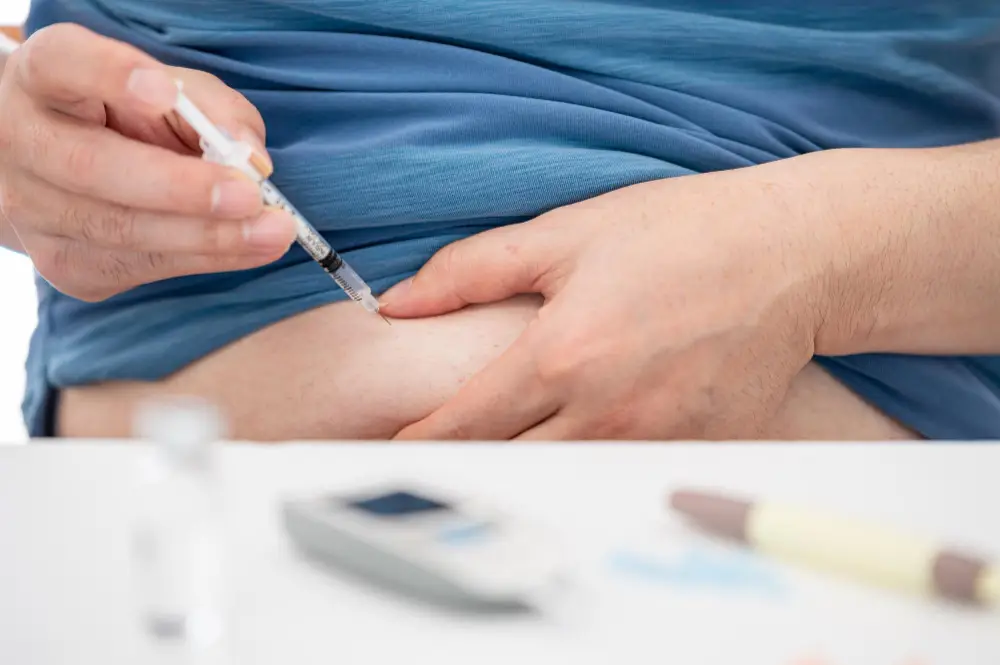Diabetic Ulcer Treatment
Exploring Advanced Immunotherapy for Diabetic Ulcer Treatment in Thailand
Diabetic foot ulcers are a severe complication of diabetes, causing significant morbidity and impacting quality of life. These chronic wounds often resist traditional treatments, making them a significant challenge for both patients and healthcare providers. Thailand is increasingly looking towards innovative advances in immunotherapy to potentially revolutionize the management of diabetic ulcers.

Understanding Diabetic Ulcers and Immunotherapy
Diabetic Ulcers: Diabetes impairs wound healing due to factors like poor blood circulation, nerve damage, and a compromised immune system. This can lead to the development of chronic ulcers, especially on the feet.
Immunotherapy: This treatment approach harnesses the power of the body's own immune system to fight disease and promote healing. In the context of diabetic ulcers, immunotherapy aims to address the underlying immune dysfunction and stimulate the body's natural healing processes.
Potential Immunotherapy Techniques for Diabetic Ulcers
While still an area of active research, here are some promising immunotherapy techniques being studied for diabetic ulcers:
Growth Factor Therapy: Growth factors are proteins that play vital roles in wound healing. Delivering specialized growth factors directly to the wound site may help jumpstart the healing process and reduce inflammation.
Cytokine Therapy: Cytokines are signaling molecules that regulate immune responses. Modulating cytokine levels in the wound environment could help promote healing and combat infection.
Cell-Based Therapies: This involves utilizing stem cells or specialized immune cells to stimulate tissue regeneration and fight infection at the wound site.
Negative Pressure Wound Therapy (NPWT) with Immunomodulatory Dressings: Combining NPWT (which helps optimize the wound environment) with dressings infused with immunomodulatory substances could further boost healing outcomes.
The State of Immunotherapy Research in Thailand
Thailand is actively engaged in research exploring immunotherapy for diabetic ulcers. Leading hospitals and research institutions are conducting clinical trials and investigating novel approaches to harness the immune system for improved wound healing. While still in its relatively early stages, this research holds the potential to offer new hope for patients suffering from this debilitating condition.
The Promise of Immunotherapy
Immunotherapy offers the potential to:
Accelerate Wound Healing: These therapies aim to overcome the stalled healing process characteristic of diabetic ulcers.
Reduce Infection Risk: Boosting immune function can help combat infections that frequently complicate diabetic ulcers.
Lower Amputation Rates: Effective wound healing could ultimately decrease the need for amputations, a devastating outcome of diabetic foot complications.
Important Considerations
Ongoing Research: Immunotherapy for diabetic ulcers is still an emerging field. More clinical studies are needed to evaluate the long-term safety and effectiveness of these approaches.
Individualized Treatment: Since factors contributing to diabetic ulcers can vary among individuals, personalized treatment plans will likely be necessary.
Potential Combination Therapies: Combining immunotherapy with standard wound care practices may yield the best outcomes.
The Future of Diabetic Ulcer Treatment
While further research is needed, immunotherapy holds promisefor revolutionizing diabetic ulcer treatment in Thailand and worldwide. If successful, these innovations could dramatically improve healing outcomes, reduce complications, and enhance the quality of life for countless individuals living with diabetes.
Disclaimer: This article is for informational purposes only. Anyone with concerns about diabetic ulcers should consult a qualified healthcare professional for diagnosis and treatment recommendations.


